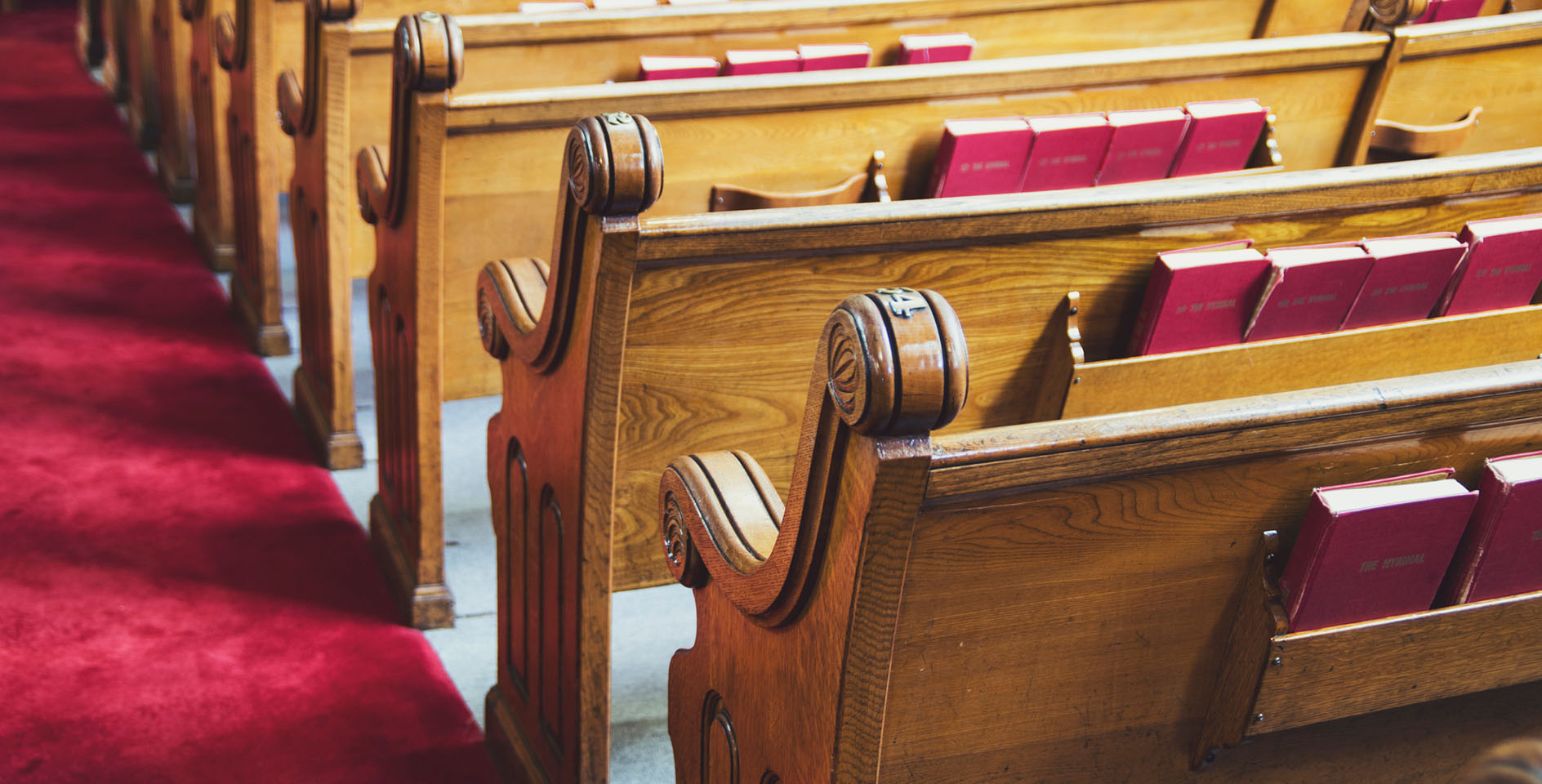Note: This article is intended as a starting point for your church as you are planning to respond to the COVID-19 pandemic. We will be updating this article as this fast-moving situation progresses.
How should churches handle COVID-19? That’s the question congregations around the country are grappling with as the World Health Organization recently declared COVID-19 a pandemic. Should they continue Sunday services? Should they cancel small groups or Sunday School? Should they change their practices for serving the Lord’s Supper or passing the offering plate?
These are not just abstract questions anymore. With over 1,000 cases of COVID-19 in America currently, this is a pressing issue for churches around the country. The landscape is constantly shifting as different regions take different actions that could impact churches. At the time of publication, some of these government actions include Santa Clara County in California limiting large gatherings beyond 1,000 peopleWashington state forbidding gatherings of over 250 in certain areas around the hard-hit Seattle region; in Ohio, Gov. Mike DeWine announced a ban on gatherings of 100 or more in the state; and, Gov. Andy Beshear of Kentucky recommending cancelling public gatherings, including churches of all sizes.
What should churches do as COVID-19 swells and government guidelines shift? Before addressing what churches should consider or how they can take practical steps, it is important to look at the bigger picture of why this is an issue at all.
Why should churches care about COVID-19?
COVID-19 has provoked mixed reactions in the church.
Faith communities have found themselves at the center of the spread of COVID-19 in America. The city of New Rochelle, New York, has implemented a containment zone in response to a COVID-19 epicenter emerging around a Jewish synagogue. Hundreds of people who attended Christ Church Georgetown have been asked to self-quarantine after the church’s rector, Timothy Cole, presided over services and served communion just prior to being diagnosed with COVID-19. Furthermore, churches are often made up of senior adults who face some of the greatest risk from COVID-19.
But the church’s concern for COVID-19 should also be rooted in its theological foundations. Every person is worthy of dignity and respect because they are made in the image of God, which means that we should seek to care well for them in trying times such as these. Yet, difficult situations create opportunities for Christians to model the call of Jesus to love our neighbors as ourselves.
What should churches do about COVID-19?
What does it look like to love our neighbors as ourselves during this COVID-19 pandemic? When disaster strikes, churches are often faithful to rise to the occasion in disaster relief or community support. But churches can’t respond to the COVID-19 pandemic in the same way as other disaster scenarios. Yet, the church always has a role to play when our communities are hurting, and pastors and church leaders need to be compassionate and creative as we identify ways to serve our communities and meet their needs.
But what can the church do right now about COVID-19? Some in our churches feel a sense of helplessness during this evolving situation. Church leaders often lack sufficient medical expertise. It is difficult to stay on top of shifting guidance from public health officials. But, in the midst of all this uncertainty, there are four key things every church can do to address COVID-19.
First, churches should identify reliable, local sources of information. Our culture is facing a crisis of trust in its institutions and information sources. So, in a pandemic situation, it is essential that church leaders identify reliable information at the local, state, and national level to stay updated on recent developments. Likewise, churches can mutually learn from one another about best practices and effective strategies. One key to aid in this effort to solidify information could be to establish a COVID-19 response team in your church, including medical professionals if possible, that is tasked with developing and implementing the other aspects of this guide.
Second, churches should assess their practices. Even if churches aren’t sure what they should change, they can at least begin by better understanding what they are currently doing. Churches can evaluate their procedures and seek to enhance them in light of emerging information and guidance. Congregations should focus on key elements like the ones covered in the final section of this guide.
Third, churches should overcommunicate their plans. It’s not enough to simply change what your church is doing. Church leaders must also be intentional about communicating their plans to their people. This includes helping people know what has changed, why these shifts are taking place, and how the plans will help. Intentional communication can both encourage those who are scared and satisfy those who are skeptical. Churches should have specialized messaging encouraging prudence for the elderly and those with underlying medical conditions. They should also provide support for parents in their congregation about how to have appropriate conversations about COVID-19 with their children.
Fourth, churches should encourage their people. When it comes to COVID-19, you will inevitably find people in your church who are either dismayed or dismissive. As COVID-19 has affected other countries, the social upheaval and personal isolation has fostered a range of mental health challenges for people in the community. While churches may not be able to confront the medical complexities of a global pandemic, they are uniquely poised to comfort the personal challenges of a panicked people with the hope and promises of God’s Word.
How should churches respond to COVID-19?
Let’s get practical. What are some specific practices that your church can implement right now to act on COVID-19? The ERLC recently surveyed over 50 church leaders around the country to ask them how they are addressing COVID-19 concerns in their churches and communities. The following is a summary of some of the most common best practices that emerged from their feedback. Our friends at LifeWay have also developed free training on “How to Prepare for the Coronavirus at Your Church.’
Disclaimer: Every context is different in terms of church practices and community guidelines, so this is not intended to be an exhaustive or authoritative resource of ERLC recommendations. Instead, this compilation of practices offered by other sources should provide first steps for your church to think through how these principles and practices might fit best in your unique ministry context. In addition, it’s important to keep up the latest developments from organizations like the CDC and WHO.
Cleaning and sanitation:
- Providing hand sanitizer stations throughout the building.
- Cleaning and sanitizing in high-traffic or common areas before and after service. Think about chairs, door handles, stair rails, counters, and elevators.
- Refraining from passing an offering plate and using sanitized offering containers available throughout the building and between services.
- Elevating sanitation efforts in preschool and children’s areas.
Worship services and church practices:
- Revising meet-and-greet in service: Many churches are eliminating the practice of standing and shaking hands during services during the COVID-19 pandemic.
- Examining Lord’s Supper practices: Churches are taking a range of measures to manage the risk of spread of the virus the Lord’s Supper, from using individual cup and bread packages to postponing or pausing the Lord’s Supper for a time.
- Limiting physical contact with greeters: Churches should encourage greeters to refrain from shaking hands and instead smile, wave, or bump elbows. In addition, churches should consider asking greeters to hold doors to limit physical contact with door handles.
- Encouraging offering at central locations: Churches should avoid passing an offering plate, which can spread germs. Instead, churches should maintain offering collection points at entrances and exits and throughout the church.
- Encouraging online giving: Churches should be proactive about ensuring church members have an easy way to make online donations. This is especially the case if your area becomes a COVID-19 hotspot and attendance numbers decline or your church decides to pause services.
- Cancelling church-wide meals: Because potluck and shared meals can lead to transmission of disease, many churches are cancelling church-wide meals and gatherings for a time.
- Cancelling or postponing additional church gatherings and events: Many churches are cancelling gatherings and events outside of worship services. Churches should consider the risks and benefits of these gatherings.
Kids ministries:
- Extensive cleaning in kids’ areas each week, including all toys and surfaces.
- Adding sanitation and cleaning practices in between services in kids areas.
- Supervising hand washing for all kids and volunteers before entering.
- Providing Hand sanitizer when entering and leaving for every kids’ class.
Travel and trips:
- Postponing or cancelling overnight retreats.
- Requesting notification of members’ travel to high-risk countries and working with individuals on the best plan of action for self-quarantining before attending worship.
- Postponing short-term missions trips, according to the International Mission Board’s guidance.
- Evaluating staff travel—domestic and international.
Alternatives to worship services and giving: The decision of whether to pause services is a significant one, which should be made with counsel from your church leadership, consideration of advice from local health officials, and with prayer and discernment. In past pandemics, churches have paused services for a time in response to government orders. In other situations, churches have continued to meet while undertaking extraordinary precautions. As your church is considering how to respond if your area becomes a COVID-19 hotspot, here are several alternatives to consider in your planning:
- Live-streaming worship services filmed at the church and distributing online
- Filming and distributing a recorded sermon along with a discussion guide for families
- Recording worship songs or providing links to recordings of worship
- Online prayer meetings through Skype, Google Hangouts, or Zoom
Develop a threat-level plan:
Dr. Daniel Chin, a global health expert wrote an excellent article at Christianity Today, recommending that your church take action based on the threat level in your community:
As cases of COVID-19 increase, we are seeing a lot of anxiety and uncertainty about what the church should do. But responses can be based on sound epidemiologic principles. I use traffic light imagery to help churches think through their local risk of transmission and what kind of actions they should take (see figure). After all, all transmission of this virus occurs locally. Your actions should not be based on what is happening 50 miles away; they should be based on what is happening in your particular community.
The article includes a helpful stoplight framework for thinking about the threat in your area and your response, which should increase as the threat increases. There are several helpful graphics at the piece, but the threat levels Dr. Chin defines are:
- Green: There are no cases in my community.
- Yellow: There are cases in my community, but cases are all imported from another area or are contacts to an imported case.
- Red: There are one or more cases, and they do not have contact to a known case. There are multiple generations of transmission.
Read more at Christianity Today.
Prayer:
- Above all, we should pray.
- We should pray for those individuals and families who either are or will be affected by this virus and for their healing.
- We should pray for the doctors and medical professionals who are on the front lines caring for those who contract coronavirus.
- We should pray for medical researchers who are diligently working to create a vaccine for this virus.
- We should pray for our leaders in office, including the president, vice president, governors, and local officials as they guide us through this moment.
- We should pray for the church to respond with thoughtfulness, wisdom, and love.
- We should pray for the continued advance of the gospel even as this trying moment continues to unfold.
Overcommunicating with your church:
- Reassuring your congregation: Churches should overcommunicate to their churches the steps they are taking, reassuring them that they are staying informed, thinking ahead, and that you will communicate as things change.
- Reminding the congregation about personal prevention: Although your congregation is receiving these reminders from a number of sources, be sure to overcommunicate about the importance of personal hygiene in preventing the spread of disease. Be sure to remind your church about diligent handwashing, alternate greetings, sneezing into arm, using tissues and disposing of them immediately, avoiding touching one’s face, staying home when sick, taking advantage of media broadcasts, and self-quarantining if experiencing symptoms consistent with COVID-19 or if exposed to COVID-19.
- Urging high-risk individuals to stay home: COVID-19 does not affect every person the same way, and according to the CDC, some are at higher risk if they become sick, including older adults and those with existing medical conditions, such as heart disease, diabetes, and lung disease.
- Directing your church to trusted, professional information sites: Your people need to know who they can trust, which starts with letting them know who you trust. Direct your church to information at the Center for Disease Control and the World Health Organization. Local and state government will also also have information about COVID-19 in your area.
Your vehicles of communication to your congregation:
As a reminder, here’s a list of the numerous communications tools you have to keep your church apprised of the latest developments and steps you are taking regarding coronavirus. Your messaging needs to be clearly and consistently overcommunicated through all these channels.
- Regular updates
- Church-wide email
- Emails to leaders
- Emails to parents
- Weekly newsletter
- Members meeting
- Pulpit
- Sunday announcement slides
- Social media
- Facebook live
- Standing COVID-19 update on your webpage
- Updates from missionaries in affected areas
- Flyers to encourage people to wash hands
- Video updates
Additional resources:
- Russell Moore: Don’t Quarantine The Great Commission
- Daniel Chin: Should Your Church Stop Meeting to Slow COVID-19? How 3 Seattle Churches Decided.
- Todd Wagner: Should Christians be Anxious About Coronavirus?
- Jed Coppenger: The Coronavirus, Fear-Reducing Facts, and 6 Christian Ways To Respond
- Caleb Morell: How DC Churches Responded When the Government Banned Public Gatherings During the Spanish Flu of 1918













